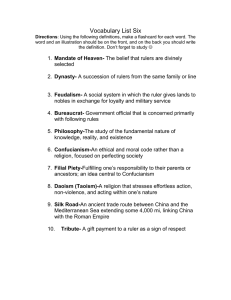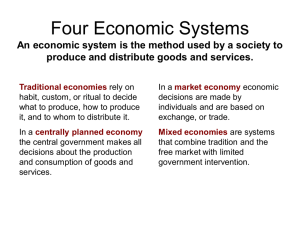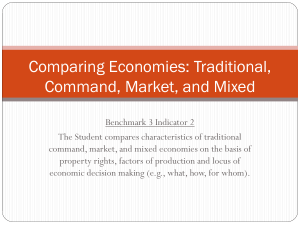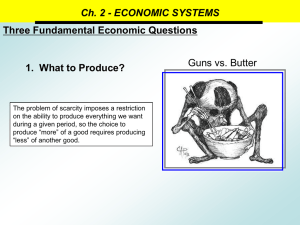Economic System Identity Card Command Economy
advertisement
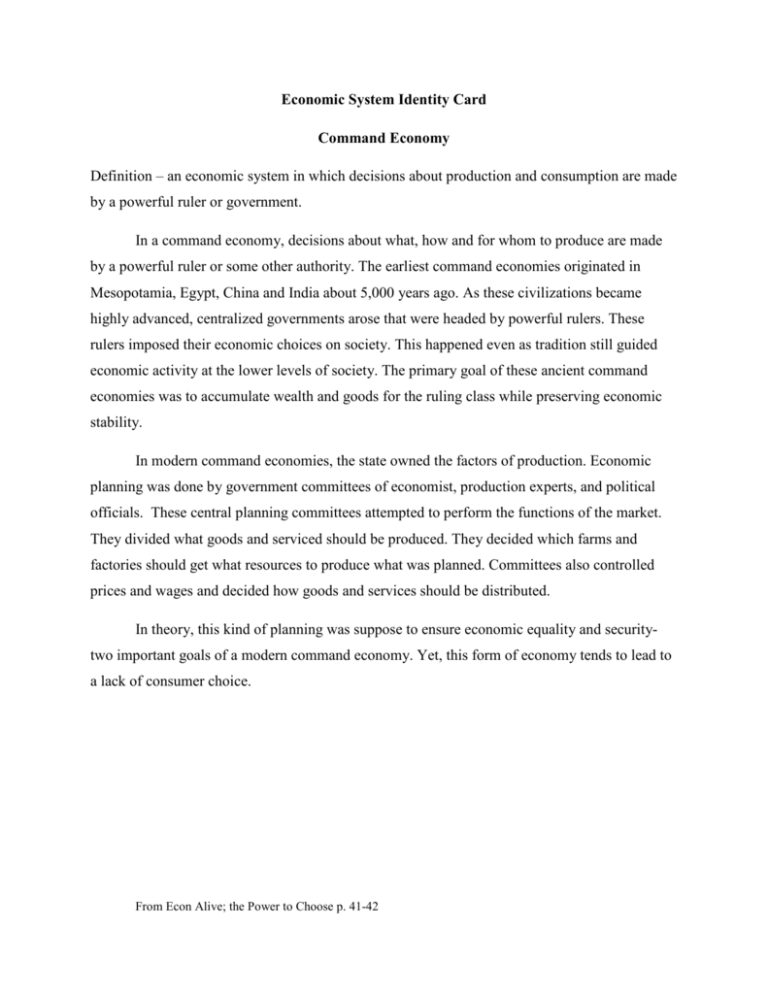
Economic System Identity Card Command Economy Definition – an economic system in which decisions about production and consumption are made by a powerful ruler or government. In a command economy, decisions about what, how and for whom to produce are made by a powerful ruler or some other authority. The earliest command economies originated in Mesopotamia, Egypt, China and India about 5,000 years ago. As these civilizations became highly advanced, centralized governments arose that were headed by powerful rulers. These rulers imposed their economic choices on society. This happened even as tradition still guided economic activity at the lower levels of society. The primary goal of these ancient command economies was to accumulate wealth and goods for the ruling class while preserving economic stability. In modern command economies, the state owned the factors of production. Economic planning was done by government committees of economist, production experts, and political officials. These central planning committees attempted to perform the functions of the market. They divided what goods and serviced should be produced. They decided which farms and factories should get what resources to produce what was planned. Committees also controlled prices and wages and decided how goods and services should be distributed. In theory, this kind of planning was suppose to ensure economic equality and securitytwo important goals of a modern command economy. Yet, this form of economy tends to lead to a lack of consumer choice. From Econ Alive; the Power to Choose p. 41-42
